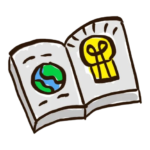
At Apple Tree, we provide a rich learning environment that maximizes each child’s development across various learning areas.
Our curriculum is based on extensive international research and practices from the UK, the US, and Hungary.
It balances academic skills with social and personal development to build a strong foundation for future learning.
Learning Through Play and Experience
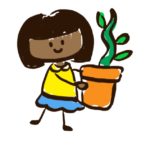
Play is at the heart of development and learning for young children. Most children play spontaneously, although some may need adult support, and it is through play that they develop intellectually, physically, socially, and emotionally.
We provide well-planned experiences based on children’s spontaneous indoor and outdoor play choices so that they learn with joy and are challenged.
Observing their spontaneous play choices gives us the chance to plan and create a challenging environment that supports and extends critical areas of every child’s learning.
Through play, in a secure environment, our children learn lifelong skills, develop ideas, make mistakes and learn from them, cooperate, and appreciate the need for rules. They acquire essential communication and negotiation skills and vocabulary.
Environmental Awareness

Apple Tree puts great emphasis on the appreciation and protection of nature. Related projects are part of our annual plan, such as:
- World Water Day
- Earth Day
- Birds’ and Trees’ Day
- World Animal Day
Together with children we observe the changes in nature throughout the seasons, both in our garden and our extended surroundings. Our community is actively involved in maintaining our fruit trees and our vegetable patch.
The garden of Apple Tree helps us experience the cycle of life at every step, from planting a seed to enjoying the harvested vegetables and fruits. Children learn about composting by regularly disposing of organic waste in our compost heap and about the importance of recycling and reusing materials. We educate our children to become responsible citizens.
Project-Based Learning
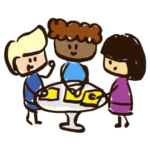
Our classroom teachers use a project-based approach when organising children’s learning. Projects are about solving a specific problem and ensuring that children explore and examine many aspects of a theme.
Project methodology has proved to be one of the most efficient ways to organise children’s learning: they focus on real-life situations and solve complex problems that provide the pleasure of foreseeable and tangible results. Projects are planned, considering children’s interests, and require a joint effort between teachers and children.
Projects enable children to develop a holistic view of the world. For example while planning and executing the project „preserving apples,” teachers cover a wide range of developmental areas, such as „apple as a fruit,” health, hygiene, methods of preservation, characteristics of autumn, maths (cutting the fruit into halves, quarters etc.) and literacy (writing labels for the jars).
With well-thought-out objectives, children will grow in all areas of development:
- physically
- intellectually
- emotionally
- socially.
Opportunities arise to extend English vocabulary, general knowledge, and understanding. Children learn about size, shape, weight, portions, taste, and even vitamins.
Annual and Weekly Plans
We consider each class group’s developmental needs and interests using our curriculum guidelines when planning activities for our children. Projects vary in length (1 day, one week, 2-3 weeks, one month, or longer) depending on the level of interest and may mean working individually, in pairs, in groups, or as a class.
Literacy Program
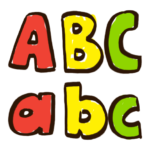
Our tailored pre-literacy and literacy program offers to prepares our children for their future school requirements, with an emphasis on hands-on exploration.
Whether your child will continue in Year 1 or Year 2 of a British school or any other school system, we tailor their learning plan to equip them for success in their future school.
Positive Behavior Management
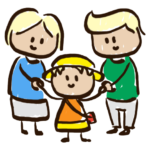
We create a nurturing environment with clear rules and expectations. Our set routine helps children to feel safe and secure and to perform well. We believe in positive discipline and find every opportunity to praise positive behaviour.
We believe that negative behaviour displayed by a child always has underlying causes. Besides dealing with the behaviour itself, we are prepared to look into the causes and work with the child to find a solution.
Apple Tree teachers manage children’s behaviour according to Dr. Jane Nelson’s Positive Discipline approach, which focuses on the positive points of behaviour. It is based on the idea that there are no bad children, just good and bad behaviours.
Individualized Learning Plans and Development Reports
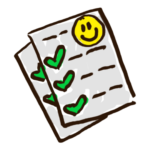
Our class teachers prepare an individual learning plan for each child with reference to their professional observations, a child and family information form, and records from previous years. We build on what each child already knows.
Their knowledge will expand considering their interests and the developmental requirements set forth by the school to which the child will enter after leaving Apple Tree, be it an international school in Hungary or elsewhere or a Hungarian school.
We organize parent-teacher goal-setting meetings for each family in the autumn to agree upon the expectations and set goals for the development of each child. Parents are informed about their child’s progress throughout the year in the form of two written develpment reports. There are also ongoing opportunities for feedback and discussions with parents throughout the year.
Learning Support Team
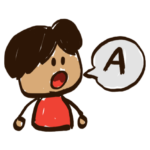
Supporting our teachers, our Learning Support team includes our school doctor, a child psychologist, two trained conductive education teachers, our full time SEN teacher and both English and Hungarian language speech therapists.
We are in regular professional contact with Napraforgóház, who provide developmental and motor skill therapies.
